Disputes in Texas Workers’ Compensation Cases
Disagreements between parties are inevitable in any workers’ compensation system. Disputes are common and often center around the Carrier’s efforts to limit the amount of income benefits or medical care that injured workers’ receive after a Compensable Injury.
Types of Disputes
Although there are several types of disputes in workers’ compensation cases, the two most common types of disputes that will affect an injured worker are Medical Disputes and Claim Disputes (also called Indemnity Disputes).
Medical Disputes – these types of disputes involve questions of medical fact and opinion as they relate to the treatment of the injured worker. Although the involvement of attorneys can be very helpful in speeding up and resolving medical disputes, the outcome of the dispute almost always relies on the doctor’s willingness to fight for the injured worker’s treatment. Example of medical disputes include:
- Denied surgery
- Denied therapy
- Denied services such as home health care or other assisted living arrangements
- Denied medical supplies or products such as braces, TENS units, and other devices
If you have a medical dispute you should contact an experienced workers’ compensation attorney right away. A qualified comp lawyer can answer your questions and help you understand your options in medical disputes.
Claim Disputes are issues in which an attorney can be most helpful. Some examples of claim disputes include:
- Compensability – whether or not your injury or illness meets the requirements to be eligible for coverage by Texas Workers’ Compensation Insurance
- Disability – whether or not you have suffered a loss of income as a result of your work-related injury or illness. Disability disputes can also include questions about when did Disability begin and end.
- Average Weekly Wage Disputes – disagreements about how much money you should receive while you are on workers’ comp.
- Extent of Injury Disputes – whether or not your work-related injury includes other parts of your body or health systems (for example, if a worker falls and injures her back and shoulder, the insurance carrier may only agree to provide coverage for the back injury).
- Entitlement to Supplemental Income Benefits (SIBs) – For injured workers who receive an Impairment Rating of 15% or higher, the carrier may challenge the employee’s entitlement to benefits if the carrier denies that the employee has made a good faith effort to find a job during the qualifying period.
- many, many other disputes that may arise during the life of a normal claim.
If you have a workers’ comp dispute, you should definitely contact a knowledgeable Texas Workers’ Compensation lawyer to understand your rights and options. Delaying this conversation could cost you valuable entitlements to income benefits and medical care.
Need Help?
Texas Workers’ Compensation laws are complex and impact many areas of an injured workers’ life and future. The insurance carrier has one goal: to limit or dispute your medical care and your entitlement to income benefits. Call 888-434-COMP (888-434-2667) and talk to our hard-working, experienced workers’ comp lawyers. You owe it to yourself to talk to an attorney who can help you understand your rights, responsibilities and options in this difficult time of your life. The call is free, there is no obligation, and all conversations are kept strictly confidential. Call today.
Contact Us
Dispute Resolution
Informal Resolution – The first step in resolving any workers’ comp dispute, informal resolution simply refers to any discussion or communication between the parties that is designed to lead to a resolution of the problem. Sharing documentation and other evidence to support your position with the insurance carrier may actually solve your problem (example: sharing check stubs or direct deposit statements may help convince the insurance carrier that your weekly comp check is too low).
Benefit Review Conferences (BRCs) – if Informal Resolution does not solve the dispute or if you’re not able to come to an agreement, the next step is to request a Benefit Review Conference (BRC). The purpose of the BRC is to discuss and mediate disputed issues in an attempt to resolve some or all of the issues, and to help better identify the basis of the disagreements between the parties. If it appears that a resolution cannot be reached, a Contested Case Hearing (CCH) may be scheduled.
Contested Case Hearing (CCH) – A CCH is a formal, administrative hearing presided over by an Administrative Law Judge to resolve the dispute. The insurance carrier will have their attorney present. Testimony and cross-examination will be taken. Evidence will be presented. The judge will make decisions about what happened, and then will apply the law. *** NOTE *** An injured worker should never attend a Contested Case Hearing without being represented by a lawyer.

Abbott, Clay & Bedoy, L.L.C.
Copyright © 2020 • All rights reserved.
Disclaimer • Privacy Policy
Toll Free 888-434-COMP
Abbott, Clay & Bedoy attorneys are licensed only in the state of Texas unless otherwise indicated in the biographical section. Past performance is no guarantee of future results. We consider employment in another State only in association with co-counsel licensed in that State. References to laws are limited to federal and State of Texas law.

